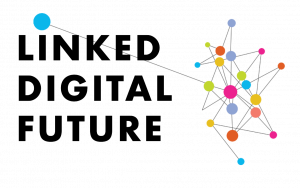Between October 2019 and March 2021, as part of the Linked Digital Future initiative (LDFI), the Digital Navigation Program offered one-on-one digital transformation coaching to arts organizations across Canada. Here is a first case study from one of the program’s participating organizations.
Challenge – Feb 2020:
As the Tuckamore Festival started with the digital tranfsormation coaching, there was a lot of room for improvement in terms of both digital intensity and culture in all aspects of its operation. The festival was especially interested in increasing its discoverability online and learning how to do this through search engine optimization (SEO) and other digital marketing tactics. A big focus of concern was the festival’s Young Artist Program (YAP) which did not have much visibility online and received submissions exclusively through traditional word of mouth. We were going to use the YAP as an applied example, with the goal of targeting and reaching young people who play cello, piano, viola, and violin where their time and attention was already spent online, YouTube.
COVID Pivot – Mar 2020:
With the pandemic shutting everything down just a few weeks later, the festival (and its associated programs for young artists and young composers) had to decide how it was going to proceed, or even if there would be a festival in 2020. There had been a big plan for its 20th anniversary that year, with international artists, a province wide tour and several extra events outside the regular season. After much discussion they decided to move ahead with a purely virtual 10-day event in August. Besides reaching out to the local university, they also needed coaching support that focused on marketing this pivot.
Work with LDFI Coach:
One of the great things about the Tuckamore team is, even before COVID, they were eager and interested in running all kinds of experiments, stretching far outside their comfort zone. They entered into their work with me with great excitement and willingness to try anything. This stood them in good stead with the unexpected challenges 2020 brought to the performing arts. Here are some of their experiments during our time together:
- A new YouTube content strategy that included a series of videos with the Artistic Directors of the festival (Duo Concertante) providing tips and insights into their creative practice. The Tuckamore team brainstormed many potential topics and I conducted keyword research (a process that accesses data on how many times phrases are searched on Google every month from the search engine’s ad platform). This research allowed us to rank these topics in terms of number of searches (which reflected a level of interest) and they moved ahead with creating the video series @Home with Duo Concertante.
- Pre-COVID we also focussed on getting the festival into the Wikidata knowledge base, which is one of the discoverability foundational tactics recommended by the LDFI. The Managing Director and I had just started adding to the listing in this important open knowledge base as the pandemic shifted priorities for the team.
- Once the festival decided to go completely virtual, everything about its online presence needed to be upgraded immediately. This included technology for capturing, editing and streaming the festival, as well as upgrading and improving the discoverability of the website and the effectiveness of its social media. Once more this experiment-embracing team rose to the challenge. Regular meetings between myself and the Managing Director focused on all the ways this opportunity could be leveraged, from updating the WordPress site and plugins from an SEO perspective to tweaking Google Ads to testing Facebook vs YouTube livestream and more. Equipment was purchased, partnerships negotiated, and skilled labour secured. The Tuckamore Online festival ran from August 10-19, 2020 featuring online events and concerts, both free and ticketed events with sliding scale pricing, at the same time as the virtual programs for the young artists and composers.
Results of Tuckamore 2020 Online:
The virtual festival was considered a success by the Tuckamore team, artists and audience:
- The festival was able to present over 50 guest artists in 20 original, live or curated-for-Tuckamore events.
- The audience expanded well beyond its traditional local loyal viewership to include listeners from across North America and Europe.
- The private festival videos on YouTube achieved over 3,500 views by 1,800 unique viewers from 6,800 impressions.
- Rapid digital evolution of a performing arts organization from relatively moderate digital maturity to a seasoned team with skills in online performance, audience development and engagement.
Lessons learned:
The LDFI coaching work with the Tuckamore team taught everyone involved a thing or two. Some of the lessons learned included:
- The openness, flexibility and adventurous spirit of the Tuckamore team was key for them to embrace the challenges and opportunities from the pandemic lockdown. It allowed them to not shut down, but lean into new skills and experiments. This didn’t mean everything was a wild success, but there was much learning even in the things that didn’t go according to plan.
- The support of the LDFI coaching was critical to build confidence in the team to stretch themselves further and to provide shortcuts and direction for their digital strategy based in digital expertise. Without it they may not have got as far as fast.
- Even if the festival is able to happen in the real world in 2021, the digital skills and equipment acquired in 2020 mean they are ready to create digital content and they are planning a hybrid festival to continue to grow their audience further and farther.
- The virtual Young Artists and Composers programs were successful, but it was hard on these young people and the social aspect was not as fully realized as they would have liked. The Tuckamore team can now see these young artists need more support in this regard. This program will not go hybrid in 2021. And, if an in-person experience is not possible, then there are plans to more fully exploit online platforms to bring these young people together through social gaming and other virtual extra-curricular activities. They will be invited into being part of whole new set of experiments and leveraged more fully as a digitally savvy part of the Tuckamore team.
Overall, I am extremely impressed by what Tuckamore achieved in 2020 and can’t wait to see where their newfound digital expertise takes them in 2021.






Leave a Reply
Want to join the discussion?Feel free to contribute!